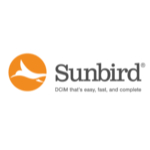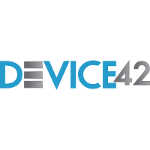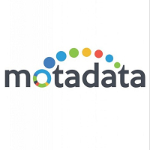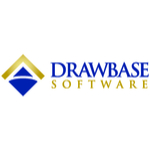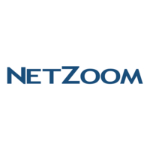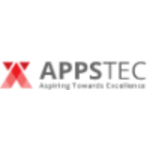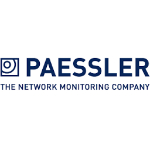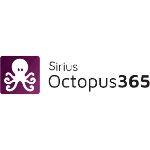
TechnologyCounter provides genuine, unbiased real user reviews to help buyers make informed decisions. We may earn a referral fee when you purchase through our links, at no extra cost to you.
List of 15 Best Data Center Management Software
Showing 1 - 15 of 19 products
ManageEngine Applications Manager
Can handle 50,000 applications at a time
Upgrade your application processing system by utilizing the dynamic and efficient application monitoring software, ManageEngine Applications Manager, which eliminates manual tasks such as application upload, information verification, and service del...Read ManageEngine Applications Manager Reviews
Sunbird DCIM is a data center infrastructure management software designed to optimize, monitor, and control all aspects of a data center. From energy efficiency to asset management, Sunbird DCIM provides a comprehensive solution to effectively manage...Read Sunbird DCIM Reviews
Established as is a solution for managing and automating IT infrastructure, Device42 is a software that simplifies complex IT processes. With its intuitive user interface and robust features, Device42 has become the go-to tool for streamlining infras...Read Device42 Reviews
RackNap is a software designed to streamline and simplify your business operations. With its customizable features and user-friendly interface, RackNap empowers businesses of all sizes to effectively manage their resources, automate processes, and dr...Read RackNap Reviews
Motadata is more than just a software - it is a IT analytics platform that enables organizations to make data-driven decisions. With a user-friendly interface functionalities, Motadata simplifies complex IT operations and helps improve performance, s...Read Motadata Reviews
Drawbase - your ultimate solution for all your drawing and design needs. With its user-friendly interface features, Drawbase will take your creativity to the next level. Whether youre a professional artist or a beginner, this software has everything...Read Drawbase Reviews
Rubrik is a leading software company offering data management solutions for enterprises, is revolutionizing the way organizations handle their data. With a user-friendly interface and powerful features, Rubrik simplifies backup, recovery, and cloud m...Read Rubrik Reviews
NetZoom is a solution for all your network design and documentation needs. With its user-friendly interface and powerful features, NetZoom simplifies the complexities of network infrastructure management. It provides you with accurate and up-to-date...Read NetZoom Reviews
Ubersmith is a solution for managing your business operations seamlessly. With its user-friendly interface features, Ubersmith streamlines various aspects of your business, from billing and invoicing to ticket management and more. Say goodbye to comp...Read Ubersmith Reviews
BindPlane is a software designed to revolutionize your data collection and management process. With its innovative features and seamless integration, BindPlane seamlessly navigates between multiple platforms to provide you with accurate and real-time...Read BindPlane Reviews
Kaseya VSA is a solution for managing and automating IT systems. With a suite of features designed to increase efficiency, streamline operations, and enhance security, Kaseya VSA is the go-to choice for businesses of all sizes. Keep your systems runn...Read Kaseya VSA Reviews
AppsTec DMS, a powerful document management system designed to revolutionize the way businesses handle their digital assets. With its user-friendly interface features, AppsTec DMS streamlines the process of organizing, storing, and sharing documents,...Read AppsTec DMS Reviews
Paessler PRTG is an innovative network monitoring solution designed to provide comprehensive insights into the performance and availability of IT infrastructure. With its user-friendly interface features, Paessler PRTG simplifies network management,...Read Paessler PRTG Reviews
SiriusOctopus365 is a software solution for business productivity. With its advanced features and seamless integrations, SiriusOctopus365 streamlines your daily operations and boosts efficiency. Experience ease and effectiveness like never before wit...Read SiriusOctopus365 Reviews
Hyperview is a dynamic software that revolutionizes the way you view and interact with your data. With its intuitive interface and powerful features, Hyperview helps you make sense of complex information and make informed decisions. Say goodbye to ou...Read Hyperview Reviews
- What Is Data Center Management Software?
- Top Reasons Why Businesses Need Data Center Management Software?
- What Are the Top Key Features of Data Center Management Software?
- What Are the Top Benefits of Data Center Management Software?
- What Are the Steps to Choose the Right Data Center Management Software?
- What Are the Types of Data Center Management Software for Different Industries?
- What Are the Technology Trends for Best Data Center Management Software?
- What Are the Deployment Options for Data Center Management Software?
What Is Data Center Management Software?
Data center management software refers to a type of software designed to facilitate the efficient management of computer systems by IT managers.
This aids in the optimization of operations and the streamlining of data-related activities. The data center can encompass software that facilitates the automation, monitoring, and control of hardware, virtual computers, and applications.
Additionally, it offers functionalities such as inventory management, electricity and cooling management, among others. Data center management software plays a crucial role in enabling enterprises to effectively mitigate the expenses associated with their IT operations, while concurrently enhancing the overall performance of their systems and networks.
Organizations can enhance their management of data center resources by effectively visualizing their IT architecture and monitoring resource utilization. This facilitates the improvement of decision-making on resource allocation and empowers individuals to proactively mitigate potential problems and minimize downtime.
The software for managing data centers also offers functionalities pertaining to system configurations, provisioning, activation, power and cooling, and adherence to regulatory standards. These services assist enterprises in effectively and securely managing their data centers, allowing them to adapt to changing business needs.
By gaining a comprehensive understanding of their data center administration requirements, enterprises are able to obtain a holistic view of the operational dynamics of their data center. This process aids in the identification of areas that can be enhanced and optimized, resulting in time and cost savings, as well as a decreased likelihood of system failure.
The best DCIM software equips enterprises with the necessary tools and enhanced visibility to effectively uphold the requisite high performance standards essential for the continuous operation of their data centers.
Top Reasons Why Businesses Need Data Center Management Software?
1. Increased visibility and control: The utilization of data center infrastructure management software facilitates the consolidation of various aspects of the data center environment into a cohesive interface, hence enhancing the effectiveness of monitoring, control, and optimization processes.
2. Automation: The DCIM system facilitates the automated provisioning and management of both physical and virtual resources and applications inside the IT environment.
3. Improved security: The best DCIM software is responsible for identifying potential threats and implementing security rules in order to safeguard data, networks, and applications.
4. Real-time monitoring: The data center management tools offers real-time performance monitoring for both physical and virtual machines within the data center infrastructure.
5. Optimized Capacity: The DCIM system enhances server usage and efficiency by the real-time monitoring of various resource utilization metrics, including CPU, memory, storage, bandwidth, and others.
6. Comprehensive reporting: The best DCIM software produces sophisticated reports that analyze the consumption of server resources and identify trends, with the ultimate goal of optimizing data center operations.
7. Power Management: Top DCIM software offers comprehensive energy use reports that facilitate the optimization of power consumption and the realization of financial savings.
8. Improved Compliance: The role of the best DCIM tools is to enhance regulatory compliance by offering automated technologies that facilitate the efficient management of security rules.
9. Scalability: Data center infrastructure management software facilitates the addition or removal of physical or virtual resources in a highly scalable and cost-effective manner.
10. High Availability: The DCIM system offers automated failover capabilities to ensure uninterrupted server operations during unplanned outages.
11. Remote Administration: Data center management tools allow information technology administrators to efficiently oversee and control numerous data centers using a unified online or mobile interface.
12. Provisioning and Configuration: The process of providing and configuring servers, storage, and networks is automated by DCM.
13. Disaster Recovery: The utilization of data center management tools facilitates the efficient and expedited backup and restoration of servers and networks, hence enabling prompt disaster recovery measures.
14. Traffic Management: Data center infrastructure management software facilitates the implementation of intelligent mechanisms for regulating network traffic, thereby mitigating latency and enhancing overall system performance.
15. Optimize Hardware and Software Usage: The DCIM system enables the monitoring of both virtual and physical assets, in addition to facilitating the disposal of unwanted components in order to improve resource utilization.
What Are the Top Key Features of Data Center Management Software?
1) Automation: Data center management software facilitates the streamlined automation of routine IT activities, resulting in decreased time expenditure and the generation of cost efficiencies.
2) Monitoring & Alerts: Data center management software facilitates the continuous monitoring of server performance in real-time and offers timely notifications regarding any deviations from expected behavior.
3) Capacity Planning: Automated capacity planning and reporting facilitate the optimization of data center utilization and contribute to the achievement of accurate forecasting.
4) Provisioning & Orchestration: The rapid provisioning of applications through the automated configuration of servers and network resources.
5) Virtualization & Containerization: The utilization of the best DCIM software, robust virtualization, and containerization capabilities is employed to optimize the IT infrastructure.
6) Disaster Recovery: The implementation of automated processes in data center management tools for disaster recovery planning is crucial in maintaining the accessibility of data centers and safeguarding data integrity.
7) Security: The implementation of role-based access control in data center management system is a recommended strategy to enhance data center security.
8) Compliance & Auditing: The use of automated compliance and audit procedures is crucial in guaranteeing adherence to industry standards within data centers.
What Are the Top Benefits of Data Center Management Software?
1. Improved Efficiency: Data center management software plays a crucial role in enhancing operational efficiency by minimizing resource inefficiencies and maximizing overall performance for enterprises.
The best DCIM software offers comprehensive insight into the many processes within a data center, enabling managers to effectively monitor the consumption of resources and proactively identify any possible issues before they escalate to a catastrophic level.
2. Security and Compliance: Data center infrastructure management software plays a crucial role in enabling firms to maintain compliance with industry rules. The utilization of the DCIM system allows administrators to effectively oversee and monitor operations within the data center, enforce security protocols, and safeguard essential data from unwanted access.
3. Cost Savings: Best DCIM tools facilitate cost reduction for enterprises through the streamlining of operations, automation of jobs, and optimization of resources.
4. Improved Productivity: Data center management tools play a pivotal role in enhancing productivity by facilitating convenient data accessibility, hence helping enterprises to efficiently obtain valuable insights and make well-informed decisions.
5. Automated Monitoring and Maintenance: The best data center management software facilitates the reduction of downtime inside enterprises through the automation of monitoring and maintenance tasks.
By promptly recognizing possible issues, organizations can proactively prevent disruptions, thereby safeguarding sensitive data and assuring its security and accessibility.
What Are the Steps to Choose the Right Data Center Management Software?
1. Identify your needs: Begin by identifying the requirements and demands pertaining to the software utilized for managing data centers. When evaluating a data center infrastructure management software, it is important to carefully consider the tasks or features that it must be able to accomplish, the number of machines and databases it will need to handle, and its scalability requirements.
2. Research data center management software: After determining one's requirements, it is advisable to conduct research on the various data center management system options that are now available on the market. To identify the optimal solution, it is recommended to explore several sources such as websites, whitepapers, case studies, and reviews.
3. Analyze features and capabilities: Examine the characteristics and functionalities of each software application. When evaluating data center management tools, it is important to take into account several factors, including the cost of scalability, convenience of use, flexibility in accommodating modifications, and the ability to serve several sites.
4. Compare prices and terms: Conduct a search for the characteristics of the top DCIM software that fall inside the confines of your allocated financial resources. Additionally, it is important to take into account any supplementary expenses, such as ongoing maintenance and the process of implementing the proposed solution. lastly,
5. Take the free trial version if available: Prior to completing the purchase, it is advisable to evaluate the best DCIM tools by utilizing its complimentary trial edition. Please assess whether it meets all of your criteria and functions effectively with your current hardware and software infrastructure.
What Are the Types of Data Center Management Software for Different Industries?
There are many types of data center management software for different industries. Common types of management tools are:
1. Cloud-Based Data Center Management Software - The data center infrastructure management software is specifically developed to facilitate access to data centers using cloud computing, hence enabling more efficient resource management at a reduced cost.
Additionally, it offers a comprehensive solution for overseeing various components of the data center, including monitoring, provisioning, and reporting functionalities.
2. Virtual Machine Management Software - This particular software enables administrators to effectively oversee virtual machine configurations, storage capabilities, power allocation, and performance metrics through a user-friendly interface.
3. Asset Management Software - The data center management system facilitates the management of asset inventory, tracking, and use inside the data center environment.
4. Network Management Software - The best data center management software facilitates network management for IT teams, including insights into bandwidth utilization, connectivity, and overall performance.
5. Monitoring Software - Application and system monitoring software aids enterprises in the monitoring and management of their data center infrastructure, servers, applications, and services.
6. Provisioning Software - Provisioning software enables enterprises to efficiently implement and customize novel services within their data centers, hence facilitating the automated management of this operational procedure.
7. Security Software - The security data center management system plays a crucial role in safeguarding the data center resources of enterprises and mitigating the potential threats posed by cyber-attacks. The top DCIM software utilized for managing data centers may exhibit variations based on the particular industry it serves, including but not limited to retail, healthcare, or finance.
Various best DCIM tools can be utilized to customize the data center according to the specific requirements of the enterprise.
What Are the Technology Trends for Best Data Center Management Software?
The technology trends for best data center management software include:
1. Automation: The prevalence of automating the provisioning, configuration, and management of data center resources is steadily rising. One significant advantage of employing automated systems is the enhanced capability to effectively and expeditiously handle intricate IT infrastructures.
2. Cloud Computing: The integration of cloud services into conventional data center infrastructure management software facilitates a more flexible and cost-efficient method for data center management. Cloud services offer enhanced flexibility and cost reduction through the optimization of operations and the provision of scalable resources on demand.
3. Security: The implementation of robust security mechanisms is crucial in safeguarding the resources of data centers and upholding compliance standards. In contemporary data center management software, there is a growing prevalence of advanced security measures such as identity and access management, encryption, and multi-factor authentication.
4. Mobility: There is a growing trend among the best DCIM tools to integrate mobile devices into their infrastructure, so enabling customers to access data at their convenience and from any location. Mobile platforms have the capability to enable remote monitoring and control of data center devices, hence decreasing the necessity for manual intervention.
5. Analytics: Contemporary data centers are integrating data analytics methodologies in order to acquire valuable insights pertaining to usage trends and patterns. By offering comprehensive analytics capabilities, firms may effectively monitor and manage their IT infrastructure, thereby enhancing operational efficiency and minimizing expenditures.
What Are the Deployment Options for Data Center Management Software?
The best data center management software is offered in two deployment options: cloud-based and on-premise.
1. Cloud-based deployments enable the utilization of data center infrastructure management software at any location and time, as the top DCIM software is hosted on the platform of the cloud provider.
2. On-premise installations, conversely, entail direct deployment within the data center, affording users the ability to leverage the hardware and software capabilities accessible on the server or local network.
Both versions exhibit a high level of security, cost-effectiveness, and ease of management. The selection of deployment method is mostly influenced by the specific demands and financial resources of the customer.
